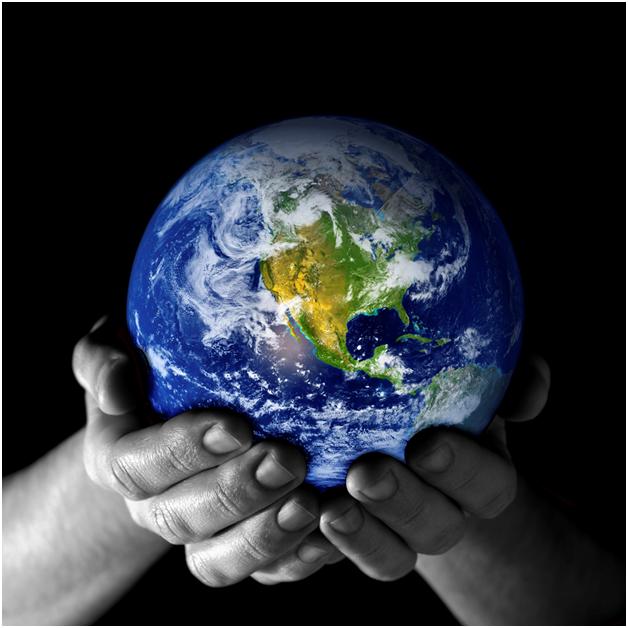Pandemic can remind us all species — plants, animals and even microbes — are interconnected in a tapestry of life

Opinion of Morgan Hill Life
This April 22 is the 50th Anniversary of Earth Day. With the coronavirus pandemic, this year’s celebration of our world’s global environment will be extra important. Here in the South Valley, we can spend our stay-in-place time that day pondering the protection of our planet and contemplating how to educate and mobilize society to encourage the growth of eco-activism.
The COVID-19 outbreak is now impacting global civilization in so many ways including politically, economically, culturally, and morally. People’s lives and livelihoods are being dramatically changed from the spread of this microbe that is impossible for humans to see without optical aid.
Thanks to the interconnectedness of our civilization, the disease spread across the world to all countries in a very short time. Santa Clara County was among the first sites in the United States to see the first confirmed cases of coronavirus patients.

“Virus spillover risk” is on the rise because of the increase of contact between people and wildlife, according to a research report published by a team of scientists led by Christine Kreuder Johnson of the One Health Institute at the University of California, Davis. They found that nearly 50 percent of the zoonotic pathogens (animal to human) transmissions since 1940 can be traced to changes in how humans use land, farm and hunt wildlife. Coronavirus might be just one of at least 10,000 mammalian viruses that can potentially kill people that humanity might have to face.
Mother Nature does not like it when we humans using industry and technology mess with Earth’s natural systems for our short-term convenience. There’s a long-term cost to changing ecological systems, and one of them is a high price to the public-health system as civilization faces new zoonotic pathogens infecting people. As the planet’s biosphere grows increasingly warmer with the carbon-crisis we face from climate change, the potential of infections of lethal viruses and bacteria will increase, stressing our healthcare system and increasing the expense of medical services.
On Earth Day, let’s also consider the impact of COVID-19 on dealing with natural disasters that impact California and many other states. If we suffered a major earthquake during the time of this pandemic, first responders and healthcare workers will be overwhelmed with aiding the injured on top of those infected with the coronavirus.
Wildfires during the summer months and early fall are a common occurrence throughout much of the West as well as southern states. To protect homes and lives, thousands of firefighters must work in close quarters at wildland fire camps for weeks at a time. These camps have a reputation for spreading illness among those hired to combat the flames. These firefighters also face high stress on their bodies from inhaling smoke and dust and dealing with poor sleeping and personal hygiene. COVID-19 can spread among them, reducing the number of those available to fight the fires.
And if communities face the threat of a wildfire’s devastation, as the town of Paradise did in 2018, people will need to evacuate to shelters where they will be packed together. This increases the potential of the spread of coronavirus to hundreds or even thousands of people. Unfortunately, COVID-19 happens at a time when the danger of more wildfires this year has increased.
Agencies in many places are not clearing brush and doing prescribed burns to reduce the vegetation that fuel massive fires. Fire managers are letting employees abide by social distancing orders as well as reduce the smoke from prescribed burns during the COVID-19 crisis. Not making these preparations now may increase the fire load later this year.
The 50th anniversary of Earth Day happens during the time of a pandemic. Perhaps its Mother Nature’s way of reminding us with a shock to the system that all species — plants, animals and even microbes — are interconnected in a tapestry of life. When humans dramatically damage the delicate networks of ecosystems around our planet, we risk the resulting wrath of the planet striking back to protect itself.






